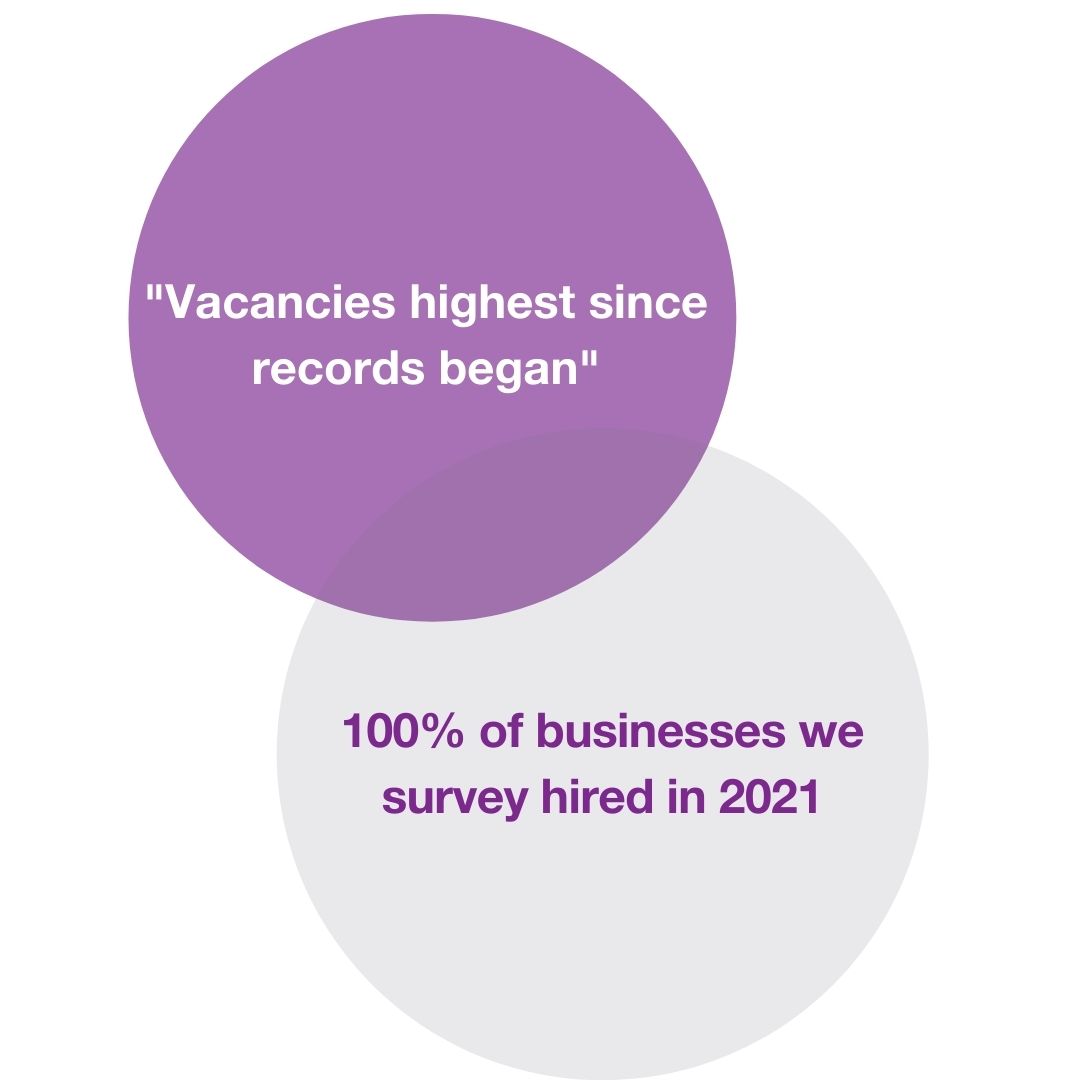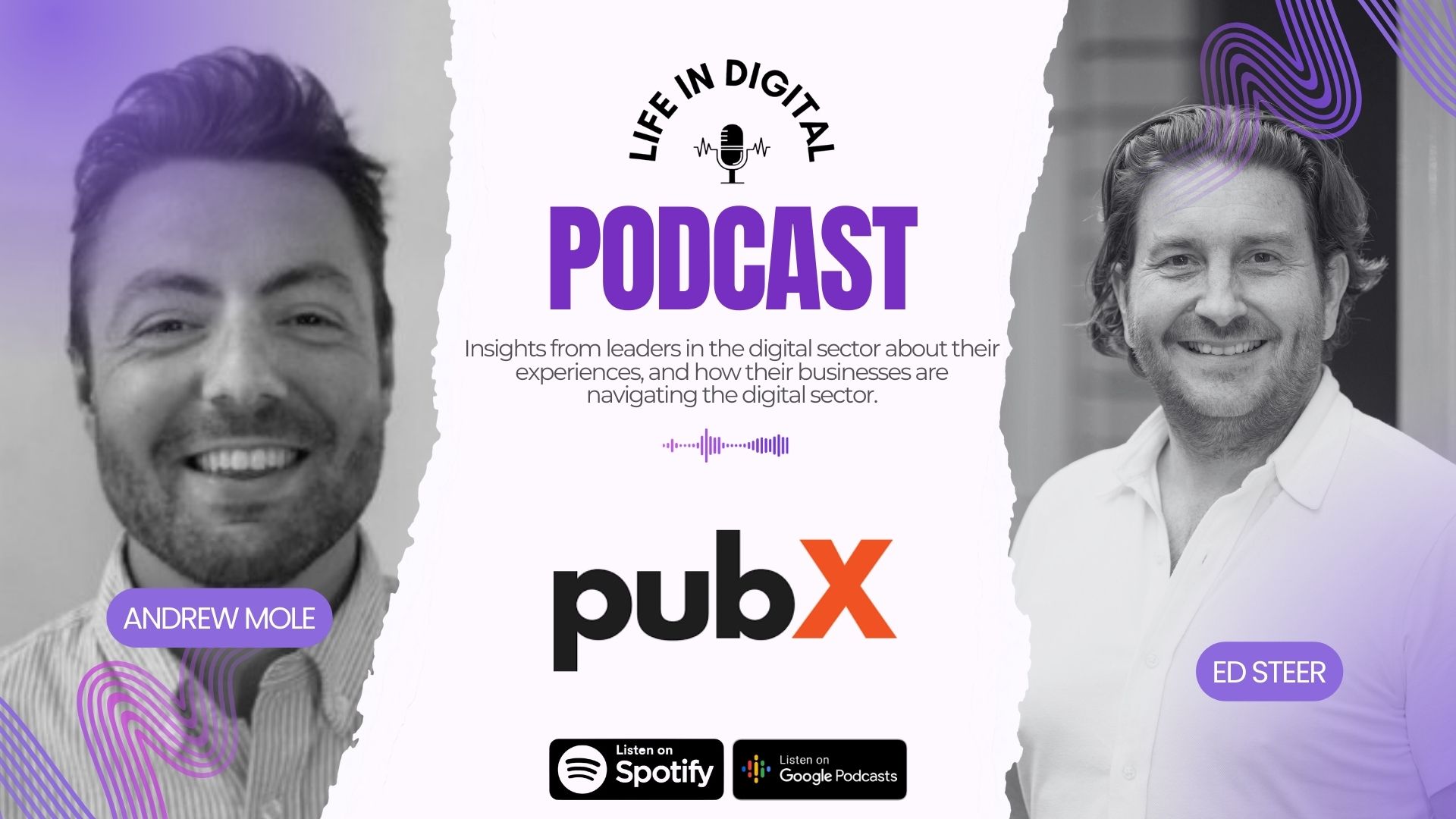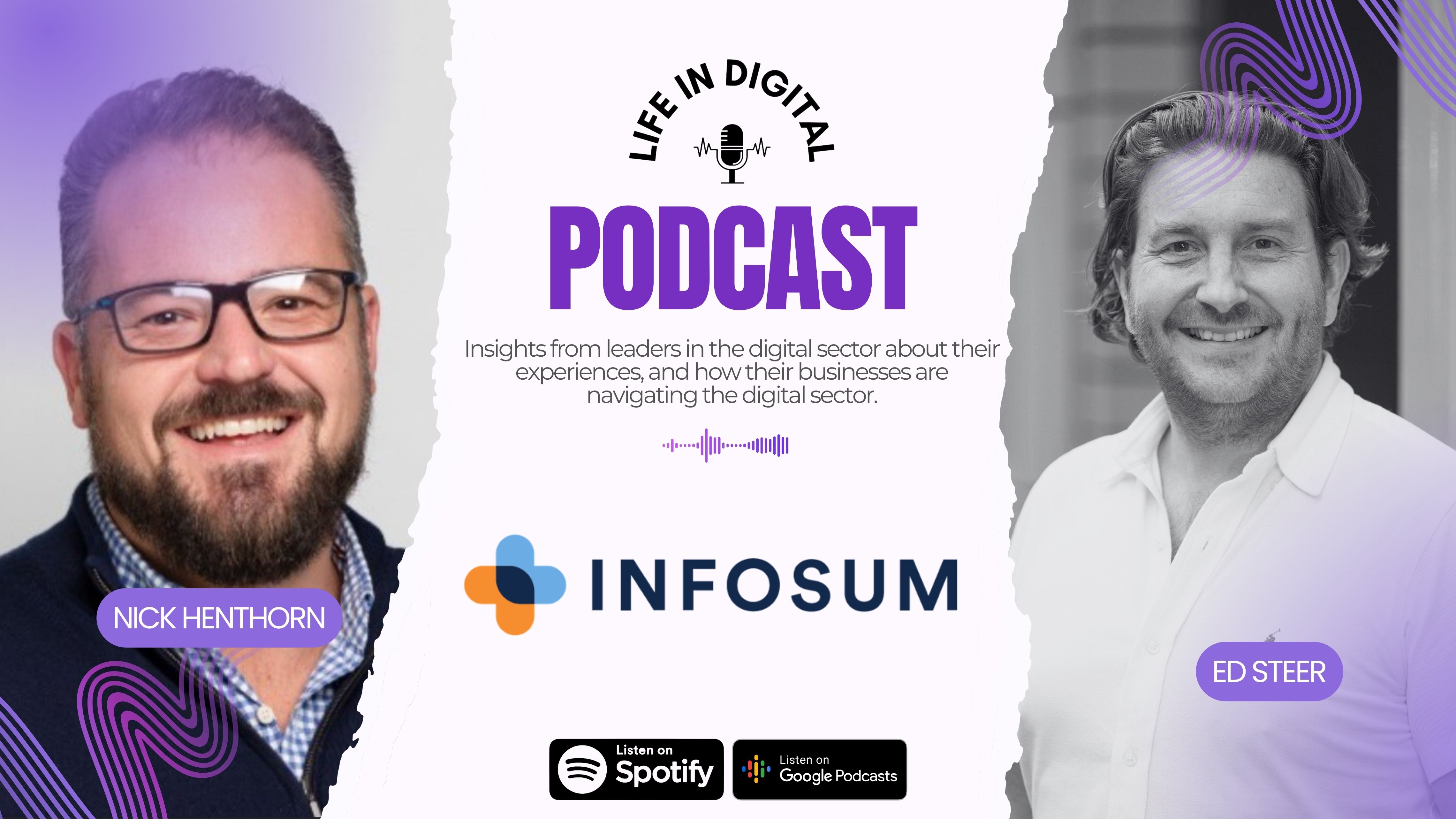Job Market Report for the Digital Sector 2021
15 Nov, 20215 minsHiring in 2021 vs Finding a Job in 2021 We surveyed 29,556 of our clients and candidate...

Hiring in 2021 vs Finding a Job in 2021
We surveyed 29,556 of our clients and candidates in the digital sector to understand the key challenges they faced this year in the job market in comparison to previous years, such as increased salary demands, delayed processes & WFH policies. We explored how our respondents dealt with
working through the pandemic and reflect on the recommendations they made that can accommodate their needs whilst many are now returning back to the office.
Although the applicant pool has drastically increased in 2021, with “164,000 people voluntarily leaving their jobs” (Hireology, 2021), our report dives into the reasons why companies with available vacancies are still struggling to fill their open positions.
“The number of vacancies in the 3 months to August has rose above one million for the first time since records began in 2001”, (BBC, 2021), and still 84% of our clients found that there was ‘a lack of candidates’.
This report aims to identify and offer solutions to some of the underlying factors that highlight what issues the job market is currently facing in regard to employee retention and hiring processes.
We reflect on how the market has adapted to post-lockdown life in the UK, European and North American markets; We cover topics such as flexible working, online vs face-to-face interview processes, reasons for hiring, reasons for someone leaving their current roles and why businesses
may be struggling to retain those who are already employed and how these factors have affected people’s mental health.
Download the full 2021 job market report, including candidates demographics by clicking here.

Vacancies at a record breaking high
We surveyed 16,290 of our clients to identify how their hiring plans were affected in 2021. Companies have stated “there is a lot of movement and fewer junior experienced candidates due to a lack of hiring in 2020 meaning it is very difficult to find people at the level needed. In addition, many businesses are counter-offering to keep talent which makes recruitment even harder”.
The majority of businesses we surveyed in the digital sector are recovering from the pandemic with 48% of these businesses hiring in 2021 due to growth from increased revenue.
“The number of vacancies in the 3 months between June to August rose to above 1 million for the first time since records began in 2001” (BBC News, 2021).
Everyone that we surveyed hired someone in 2021: 73% stated their reason for hiring was for ‘expected growth’, 43% were ‘replacing headcount that was lost during Covid’ and around 23% hired due to ‘launching in a new market or location’.

Candidates are seeking higher salaries and flexible work
We surveyed 13,266 people working in the digital sector and found that 47% are actively looking for a new role this year due to the furlough scheme ending, 76% are seeking better opportunities and 46% demanding higher pay.
52% of our respondents stated that they have been feeling ‘burnout’, with 40% saying they worked 'a lot more' in 2021. This is a key area to consider for employee retention.
Candidates are prioritising flexible working (53%) and pay (73%) when we asked what the most important factor to them in a role was. One person mentioned “online interviews have made it hard to sense the office, environment and people” with 53% saying their interview experiences are lengthy as they typically go through 3-4 interview stages, which is more than previous years.

Reasons people moved and hiring challenges
A common theme presented in our results was candidates wanting ‘more flexibility’ as 45% moved to new roles for this very reason. 76% of individuals moved roles due to ‘better opportunities’ with 46% wanting a ‘higher salary’. 18% of our respondents are sought a role due to ‘redundancy’ and
uncertainty from the ‘furlough scheme’. One individual commented their reason for moving was “no room for growth in previous company” and wanting to be in a “more challenging environment”.
From our survey, we have recognised that businesses are facing 2 main challenges when hiring in 2021: “a lack of candidates” was a consistent response from 74% of the companies and 39% said “candidates accepting alternative job offers”. Some of the reasons for this could be that candidates are having health concerns from the pandemic and the need for their salary demands to be matched.
Due to these factors the “workforce participation rate has remained stagnant at about 61.6% for several months in 2021 and declined from 63% prior to the pandemic” (Hireology, 2021).

One of the biggest challenges we received from both sets of respondents the businesses’ needs to meet salary demands: over half (58%) of businesses surveyed struggled to meet salary demands. This can be seen as one of the biggest obstacles our respondents are facing in their hiring and retention processes.
As stated above, 48% of businesses' main reasons for hiring were for growth that came from increased revenue. Although, it is vital to hire for business growth plans it is just as important to retain existing talent - benchmarking salary is fundamental to addressing this.
A way companies could eliminate the major issue of retention during a difficult period is to evaluate their existing employees’ needs (e.g., salary demands, flexible work and mental health). Finding the right balance between a business' growth and retaining existing employees can be seen as
challenging; However, in order to meet in the middle businesses should evaluate how their competitors are achieving growth and retention and for employees to demonstrate that they’re a valuable asset.
Our results have shown 76% of our candidates say they moved due to “better opportunity” this may be the reason 54% of our clients’ reasons to hire were due to replacing staff which wasn’t related to Covid-19.
Companies have the best shot at retention if they listen to and understand employees' needs during a difficult period, offering flexibility which benefits both parties, and accommodating salary requirements. Companies may benefit by introducing regular salary reviews which will keep
employees motivated and offer flexible work – which have been 2 of the most important factors for our candidates this year.

Flexible working
Our most recent Salary Survey found that flexible working was the no.1 desired benefit across the digital sector with a quarter of respondents and this hasn’t changed in 2021. Everyone who took part in our survey were asked what their most important factor is when looking for a role: 74% answered
‘pay’ followed by 53% answering ‘flexible working from home policies’. One respondent shared “the pandemic has made us realise that flexible working is now one of our primary requirements” having come to realisation that working from home has increased their productivity levels: 56% say they
have got more work done in less time.
Companies who have introduced hybrid working can see its benefits when allowing employees to work from home, alternatively there has been mixed views as 15% find WFH to be mentally draining and repetitive.
A new WFH policy proposal has been introduced which “would allow all UK employees to request a flexible working arrangement from their first day as a new employer”, however, TUC general secretary Frances O’Grady state’s that “ministers claim that employers can still turn down any or all
requests for flexible working” (BBC news, 2021.)
“9 out of 10 employees want partial flexibility to choose where they work” (Mind.org.uk, 2021); our results coincide with this as 53% of our respondents have stated that flexible working is one of the most important factors when looking for a role.
Number of days in the office:

Companies maintaining culture is just as vital as the other factors stated in this report. Lockdown limited the opportunities employees had in forming relationships with colleagues in person. Whereas now that people are allowed to return back to offices, promoting a better work culture
can gradually continue as 22% found this to be just as important. Companies can do this by finding the right balance of days people come into the office as 54% prefer working 2-3 days in the office; this can help companies plan team activities and form relations etc.
Interview Processes & Experience
From our survey we have witnessed that companies have found the market to be extremely competitive post lockdown. As all our clients said they had plans to hire in 2021 but 84% said there were “a lack of candidates” and 40% of “candidates taking other job offers”. 16% of our clients
found the “processes too long” with only a few businesses (4%) saying they found hiring easier this year.
57% of businesses voted that they typically have 2-3 interview stages. One client said, “We always run 3 rounds of interviews - introduction, 2nd round and presentation”; However, the job seekers we contacted did not agree: 54% of candidates have said they normally experience 5-6 interview
stages as one person said “too many interviews with too many people who aren’t the decision makers or relevant to the position.”


The report showed a significant rise in the number of interviews in comparison to previous years according to job seekers: 29% have claimed that there are more interviews than usual and 59% stated that “the stages have remained about the same”.
Having a long interview process can be a factor as to why clients are not finding the right candidate, as companies that have shorter processes may win over longer processes.
Number of interviews vs previous years
40% claimed that the hiring processes have become slower than in previous years due to a lack of candidates. One hiring manager said “often it’s to do with our time, as we are busy and making time for interviews is difficult. Any delay seems to result in missing out on candidates as the market is so
fast-paced” therefore, losing out on talent.

We also asked clients if they would still continue interviewing other candidates after already finding a suitable candidate and 57 said ‘yes’; After witnessing concerns about a competitive market, it shows that companies are not being quick to decide or are hesitant therefore losing out to top talent due to doubts as one candidate said, “companies and recruiters are still conservative and risk averse in hiring.” Some of the factor’s companies should consider when continuing to interview is that there may not be a more experienced or qualified candidate, and this may mean that you lose
out on them to competitors.
Virtual Hiring - Loss of human touch
Candace Nicolls, Senior Vice President at Snagajob voiced that “even for businesses resuming in-person operations, I expect that virtual and automated interviews will instead replace many in-person touchpoints, helping to accelerate timelines” (SHRM, 2021). However, from our survey it has
been recognised that respondents are losing the human connection that comes from physical interviews and there is a limited chances of good impressions that can sometimes be the deciding factor for many companies and candidates.
During lockdown, all interview processes were being held online with a few being held in the office where necessary. The shift in interview processes has been drastic as both candidates and companies had to adjust to lockdown, realising the lack of human connection that came with it as one candidate stated, “interview was through Microsoft Teams, making it more difficult to sense people”. Candidates also were lacking a sense of office culture and the working environment they would potentially be joining, making it harder for them to accept offers due to uncertainty.
There has been a mixed view on interviews this year as one candidate claimed, “their interview experience wasn’t great as they didn’t like being interviewed online or on Zoom”. Online interviews can be a major obstacle for both clients and candidates when it’s decision time; a reason for this is
due to the lack of human connection that face-to-face interviews have. Alternatively, some candidates preferred online interviews as one person said they “saved money and time by not having to commute’.

Some have said to have found working from home to be “mentally draining and repetitive” and one person said “whilst my HOD is supportive, the wider company is being quite strict and doesn’t seem to trust us to WFH” – finding the right balance of days in the office vs at home can prove to be
beneficial for employees. One employee said, “being able to WFH has helped mitigate feeling burn out.” Whereas another said, “the market is good, but needs more interaction and office time”.
Therefore, providing employees a personal choice to either work in the office or from home can prove to be beneficial as 56% have said their productivity levels were a lot better when WFH. Additionally, monitoring employee’s mental health can help companies provide support where needed.
Summary
We’ve all felt how competitive the market has been in 2021; Despite a record breaking number ofvacancies and 68% of people looking for a new role in 2021, businesses have quickly realised that the increase in people considering a move, hasn’t correlated in an abundance of candidates. Instead, candidates have a lot of choice of roles and it’s paramount the businesses create efficientinterview processes and pay particular attention to retention.
We found that over half (53%) of people surveyed would accept a counter offer but how can we catch people before they hand in their notice?
In 2021, 76% of people leaving their role, left for ‘better opportunity’ followed by 46% cited ‘more pay’. Perhaps unsurprisingly, given what a seismic change 2020 was to so many people, 39% of people surveyed said the pandemic had changed what’s most important to them in their careers.
Streamlining interview processes
27% of people surveyed experience 4 or more interview stages before being offered a role. In order to stay competitive, interview processes should be as short as possible, by minimising the processes, you can stay ahead of the competition.
If candidates have been sent by recruiters, eliminating initial telephone interviews and moving straight to video interviews with hiring managers is key as the qualifying has already taken place prior to the candidate being sent.
Candidate experience was polarising, with some citing that “moving online has the advantage of not losing lots of time traveling to interviews that may go nowhere”, whilst others felt that “it’s been a large waste of time with too many interviews with too many people who aren’t the decision makers or relevant to the position.”
Addressing mental health to reduce attrition
After a tough year, many businesses need to address the ‘burn out’ of their employees: 52% of people surveyed experienced this in 2021. Some of our respondents reported feeling “mentally drained” and frustrated with the “lack of communication”. Having regular check-ins is paramount to being in the know about how employees are feeling this year.
Flexible working was the no.1 desired benefit in our last Salary & Benefits report and this continues to be sought after. 2020, despite the many challenges, was an opportunity for many businesses who hadn’t previously considered a hybrid-model a chance to find ways of working that were sustainable; 84% of people felt that working from home has improved or was at the same levels working from the office.
Our Salary Report for 2021 will be published early next year, in the meantime, please refer to this year's report from guidance on salary and benefits:
https:// www.spheredigitalrecruitment.com/download-the-2021-salary-and-benefits-survey
Download the full 2021 job market report, including candidates demographics by clicking here.
Index
BBC News. 2021. Job vacancies surge past one million in new record. [online] Available at:<https://www.bbc.co.uk/news/business-58543554> [Accessed 13 September 2021].
Hireology. 2021. June 2021 BLS Report — The Hiring Crisis is Here. [online] Available at:<https://hireology.com/blog/june-2021-bls-report/> [Accessed 12 September 2021].
Ons.gov.uk. 2021. Vacancies and jobs in the UK - Office for National Statistics. [online] Available at:<https://www.ons.gov.uk/employmentandlabourmarket/peopleinwork/employmentandemployeetypes/bulletins/jobsandvacanciesintheuk/august2021> [Accessed 16 September 2021].
Maurer, R., 2021. 2021 Recruiting Trends Shaped by the Pandemic. [online] SHRM. Available at:<https://www.shrm.org/resourcesandtools/hr-topics/talent-acquisition/pages/2021-recruiting-trends-shaped-by-covid-19.aspx> [Accessed 14 September 2021].
CEOWORLD magazine. 2021. The Challenges Facing Company Culture in 2021 - CEOWORLDmagazine. [online] Available at: <https://ceoworld.biz/2021/02/13/the-challenges-facing-company-culture-in-2021/> [Accessed 28 September 2021].
Mind.org.uk. 2021. Taking care of your staff. [online] Available at:<https://www.mind.org.uk/workplace/mental-health-at-work/taking-care-of-your-staff/>[Accessed 27 September 2021].




